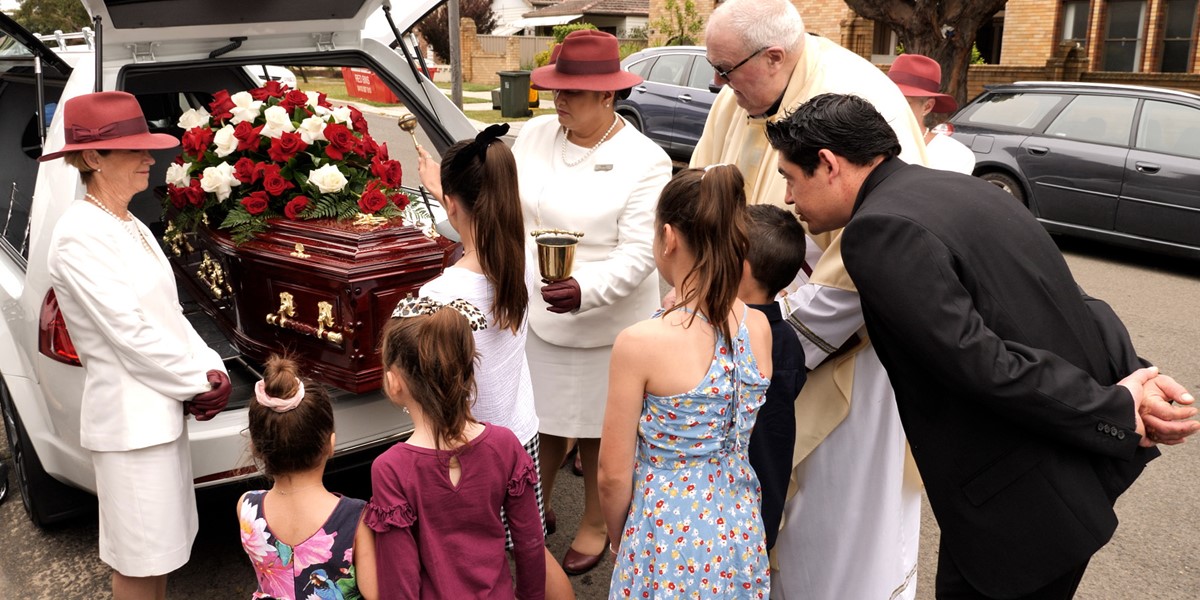The video, photo and audio visual team trusted by families & leading funeral directors.
Talking to children about death

Talking to children about the loss of a loved one can be a daunting task, especially when dealing with your own grief. With the below tips, you may find it easier to approach the conversation with your child.
Introducing the conversation of death
Unfortunately, we will all experience death at some point in our lives. When telling a child that someone has passed, remember to remain calm and caring while using clear words. Death is a natural part of life and for children it may be easier for them to relate the conversation to something they already understand, such as a plant or animal dying.
Your child may not react straight away, or they may have questions. Explain that it’s ok to feel sad, mad, frustrated, or scared. Reassure them that you are there for them and comfort them with hugs.
Be honest
While you want to soften the news of the loss of a loved one, it is best for the child if you are honest. Using terminology such as “Grandad is sleeping” can have a negative effect as the child might associate sleeping with not waking up.
It is best to keep the conversation short and use simple words such as “I have some sad news to tell you. Grandad died today." Give your child time to process this information.
Take things slow
During such an emotional time for the family, it is important to remember to be patient with your child and yourself. You and your child are likely to feel a range of feelings. You may notice your child is sad, worried or acting out. Reassure your child that it is normal to experience these feelings and that it takes time to feel better. Remember to take some time to help your child feel better by doing an activity they like.
Preparing for the funeral
To avoid your child feeling overwhelmed at the funeral, you may like to explain what they can expect. For example, “People who love Grandad will come together to say goodbye. There will be singing, talking about Grandad’s life and a video showing photos of Grandad”. Explain they may see people crying and hugging and that it is ok if they cry. Also explain the following events, such as the burial or the wake.
Helping your child heal
In the days and weeks following the funeral, your child may continue to feel a range of emotions as they process their grief. Encourage your child to share happy memories by drawing pictures, looking at photos or writing down memories. Loving memories spark good feelings that supports your child’s journey to heal and remember the person they love.
Remember that each child is different and will show grief in their own way. Children can often cope with the loss of a loved one more then we give them credit for. This can depend on the child’s age, how close they were with the deceased and the support received.
I have just viewed, and so beautifully filmed. This is so special to have, not only for us but for a great many family members unable to attend, from Europe and Ireland. I was impressed by your complete professionalism and caring nature.
Ann, Wentworth Falls





